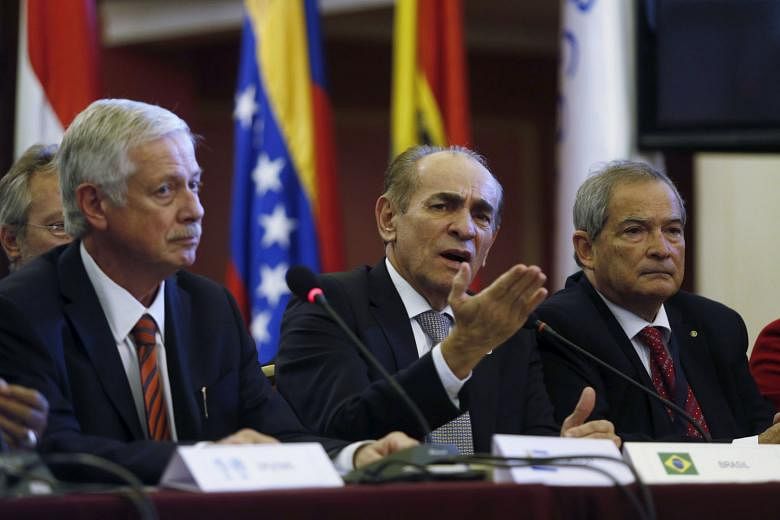MONTEVIDEO• • South American health ministers held an emergency meeting on Wednesday on slowing the spread of the Zika virus, dubbed a "nightmare" by hard-hit Brazil, which blames it for brain damage in babies.
With the health authorities warning the disease could infect up to four million people in the Americas, ministers from 14 nations held talks in Uruguay to plot their response to the growing crisis, with fears that the virus could spread worldwide.
The meeting focused on ways to control the mosquito population spreading the virus, though reports of a US patient catching the disease by having sex fuelled fears that it will not be easy to contain.
Brazilian President Dilma Rousseff said her government was directing "all resources" available towards the crisis, and vowed to do "absolutely everything" for the families of babies born with microcephaly, or abnormally small heads and brains. The number of babies with the condition has surged since the Zika outbreak sweeping Latin America was detected last year.
"This virus, which only recently arrived in Brazil and Latin America, no longer is a distant nightmare but a real threat to all Brazilians' homes," Ms Rousseff said in a nationally televised message.
Brazilian health authorities confirmed yesterday a case of transmission of Zika through a transfusion of blood from a donor who had been infected with the mosquito-borne virus. The health department of Campinas, an industrial city near Sao Paulo, said a hospital patient with gunshot wounds became infected with Zika after multiple blood transfusions last April.
Officials said they determined that one of the people whose donated blood was used in the transfusion had been infected with Zika.
Brazil's Health Ministry said it was reinforcing instructions to blood banks that people infected with Zika or dengue are not permitted to donate blood for 30 days after their full recovery from the active stage of Zika infection.
That comes after British and Canadian authorities said returning travellers from Zika-hit countries will be barred from donating blood for a month and three weeks, respectively, underlining growing fears.
Transmission of Zika through blood transfusions adds another dimension to the outbreak of the virus. The virus is usually transmitted by the bite of a mosquito. But health officials in Texas reported on Tuesday that a person in Dallas became infected after having sex with another person who had travelled in Venezuela, where the virus is circulating.
Meanwhile, Florida Governor Rick Scott declared a health emergency in four counties after six new Zika cases were detected in the US state. These bring the number of Zika cases in Florida to nine.
The authorities say all caught the virus while travelling abroad, though there is concern it could spread locally because the Aedes aegypti mosquito that transmits the virus is present in the southern US.
The World Health Organisation (WHO) has declared the spike in serious birth defects an international emergency and launched a global Zika response unit. Colombia, Ecuador, El Salvador, Jamaica and the US territory of Puerto Rico have all warned women not to get pregnant.
Health experts warn that Zika poses a massive threat to Asia. Thailand confirmed that a man contracted the infection and Indonesia has also reported a domestic case, as has Cape Verde off north-west Africa.
The WHO warned European countries to act early to stop Zika spreading. The European Centre for Disease Prevention and Control said the mosquito has "re-colonised" Madeira in Portugal and parts of southern Russia and Georgia in recent years after disappearing from the continent in the 20th century. It has been spotted as far north as the Netherlands.
AGENCE FRANCE-PRESSE, REUTERS


